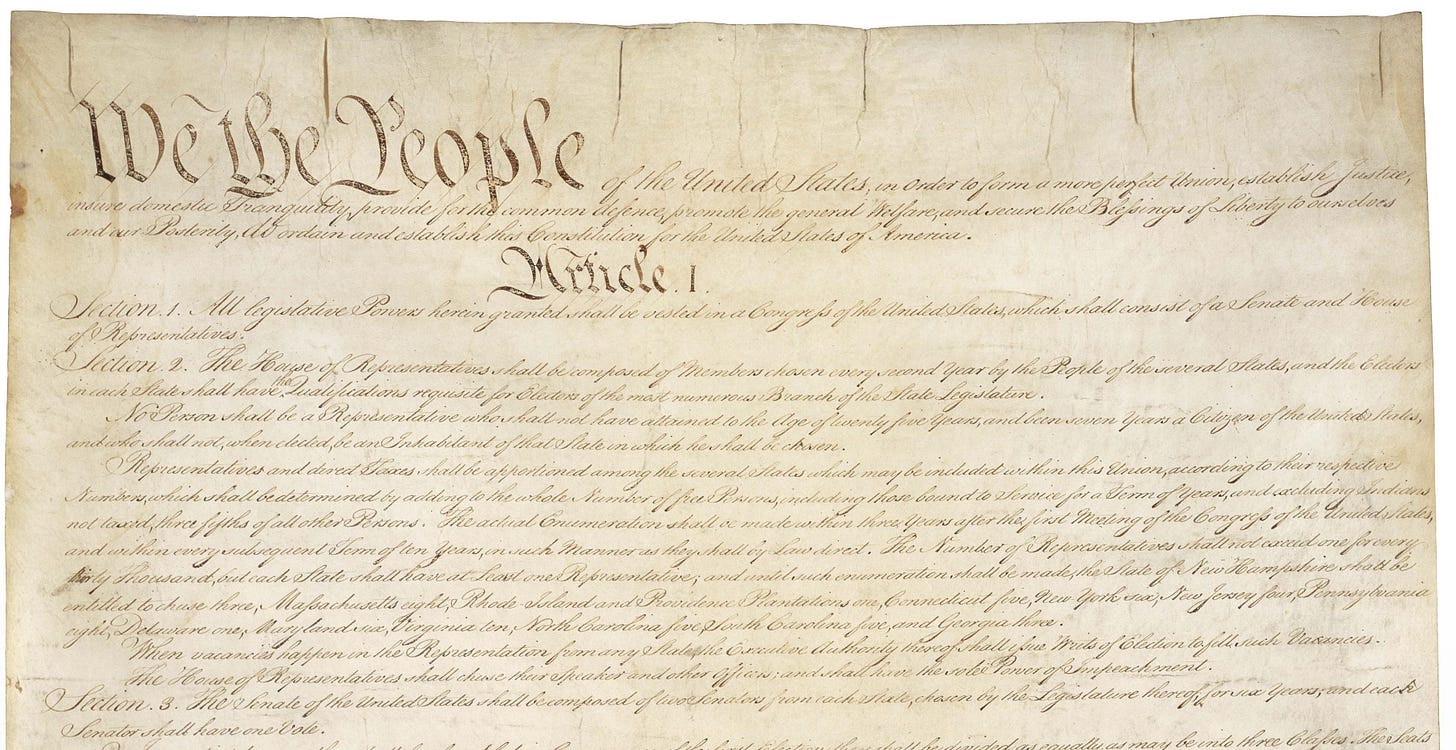In search of a more perfect union
Our representative democracy thrives only when our leaders respect established norms and processes. For many years they did. It is apparent that we can no longer rely on them to do so.
We the people of the United States, in order to form a more perfect union ...
“Well, what does that mean? A more perfect union? If it's already perfect, how can you make it more perfect?”
Mr. Duea didn’t expect an answer to his question, which was a good thing because no one in my U.S. history class had one. We shifted uncomfortably in our seats, stared down at our desks and wondered, “What exactly comes beyond perfection?”
With the distance of years, we have come to believe that more perfect, more complete unity is a challenge, a gauntlet dropped at our feet by the Constitutional Convention. It is a challenge we the people have, of late, been failing to live up to.
Unity does not mean that we must agree with one another, which is good because we Americans have never been very good at that. Unity instead demands a shared process: an agreed-upon method to identify problems, offer solutions, find the problems with those solutions and compromise on the way forward. For this process to work, everyone involved needs to accept certain norms: respect for independent evidence, respect for minority influence, respect for checks on the process, basic comity.
Over the last decades, our processes and norms have been falling apart at both the federal and state levels. There have been many prominent examples of partisan legislatures pushing through bills without respect for shared process: little or no debate, no meaningful input from the minority party or the public, and procedural chicanery moving bills so quickly that neutral budget agencies cannot evaluate them. In short, these legislatures have made end runs around the features of our system designed to make good decisions that both sides can buy into.
This failure is not limited to the legislatures. Our political discussions have coarsened, devolving into name-calling at every level, from social media to the White House. On the executive side, we have recently witnessed the breakdown of our process to fill posts ranging from university presidents to judgeships to executive staff, regardless of whether those processes were based on tradition, law or the Constitution. Our highest leaders flout traditions surrounding transparency, independence and conflicts of interest.
Our representative democracy thrives only when our leaders respect these norms and processes. For many years they did. It is apparent that we can no longer rely on them to do so. We have been told since President Ronald Reagan that the government is broken; now it is broken even by its old standards.
Other, younger democracies have already enshrined these norms in laws and constitutions, ensuring their ability to preserve and protect rule by and for the people through the rule of law. When our leaders are derelict in their duties to democracy, we the people must demand that our legislators enshrine these onetime norms in law so that our democracy may again be a force of unity.
Work toward making this change has started at the federal level. The nonpartisan Brennan Center for Justice at the New York University School of Law recently launched the bipartisan National Task Force on Rule of Law and Democracy. The task force will examine which of our traditions should remain traditions and which should be enshrined in law. In Iowa, we must grapple with the same issues the task force will address (ethics, independent courts, free press, qualified public officials, and transparent and appropriate government research) as well as the failures of our legislative process. Then we must find solutions for them in our state.
What does that mean for each of us as private citizens? Take up the gauntlet. Know what’s happening in the legislature. Show up at legislative forums and call out bad behavior. Demand that your legislators address these problems. If they don’t, let them know that they are losing your vote. It’s not easy, but perfection is hard work.
Kelcey Patrick-Ferree and Shannon Patrick live in Iowa.
Originally published in the Iowa City Press-Citizen on March 9, 2018.


